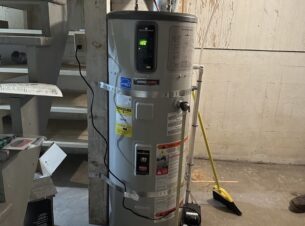The truth is that construction and other trade jobs are heavily tool-based efforts. We have to lug around our equipment, or bring other materials to our workshop, or sometimes, even own a personal production line necessary for more advanced work. If we use tools, then odds are, there will come a day when we have to decommission old equipment.
Of course, it’s not just hand or power tools that can be defined in this way. Workshop installations or even vehicles are part of our business asset library, and in order to get our best use of them, maintenance and careful use is essential. Not only that, but we have to invest in security, as a van full of tools are often the most preferred targets for would-be thieves.
Yet when the time comes for replacing your old equipment as best you can, it’s important to know what your options are. Decommissioning old equipment can take time, and it must be handled correctly. However, it can also sometimes ensure you can squeeze out some last drops of value before you part with your unwanted assets. Here’s how:
Finding The Best Value
Finding the best value in selling your equipment can be helpful. Diligently cleaning your equipment and selling it at a construction or trade auction can potentially help you shift large volumes of tools to those who might use those materials for other purposes. You may be able to trade in old tools for newer items through a loyalty plan curated by some services. Always see if there’s a final use for equipment or tools before you let them go, and consider replacing your current equipment with reliable services, such as those offering used CNC machines.
Liquidation & Decommissioning
Using a liquidation and decommissioning service can help you more readily rid yourself of all your unused or unwanted assets in a matter of weeks. From decommissioning old vehicles to disassembling production equipment safely and careful, use of these services may net you less of an immediate payment than you may expect, but you save money in storage, in needing to properly dispose of the items, and in avoiding the effort it takes to source purchasers at a price point you want. As such, these entities are often an industry favorite.
Specialists
Of course, sometimes it takes specialist to carefully and slowly disassemble old equipment so that safety is paramount. Sometimes, this may mean paying the official manufacturer of a piece of workshop machinery to come and nullify its operation to ensure that it’s safe from now into the future. It may also be that recycling certain materials, such as old scaffolding works, is only truly possible when heading to an industrial recycling plant, allowing you to make sure you dispose of such materials in an ethical and correct manner. All these services will require a diligent inventory and inspection before taking the load on, but they are worth their weight in gold when you achieve that.
With this advice, we hope you can more easily and readily decommission new equipment as standard.




Join the conversation: